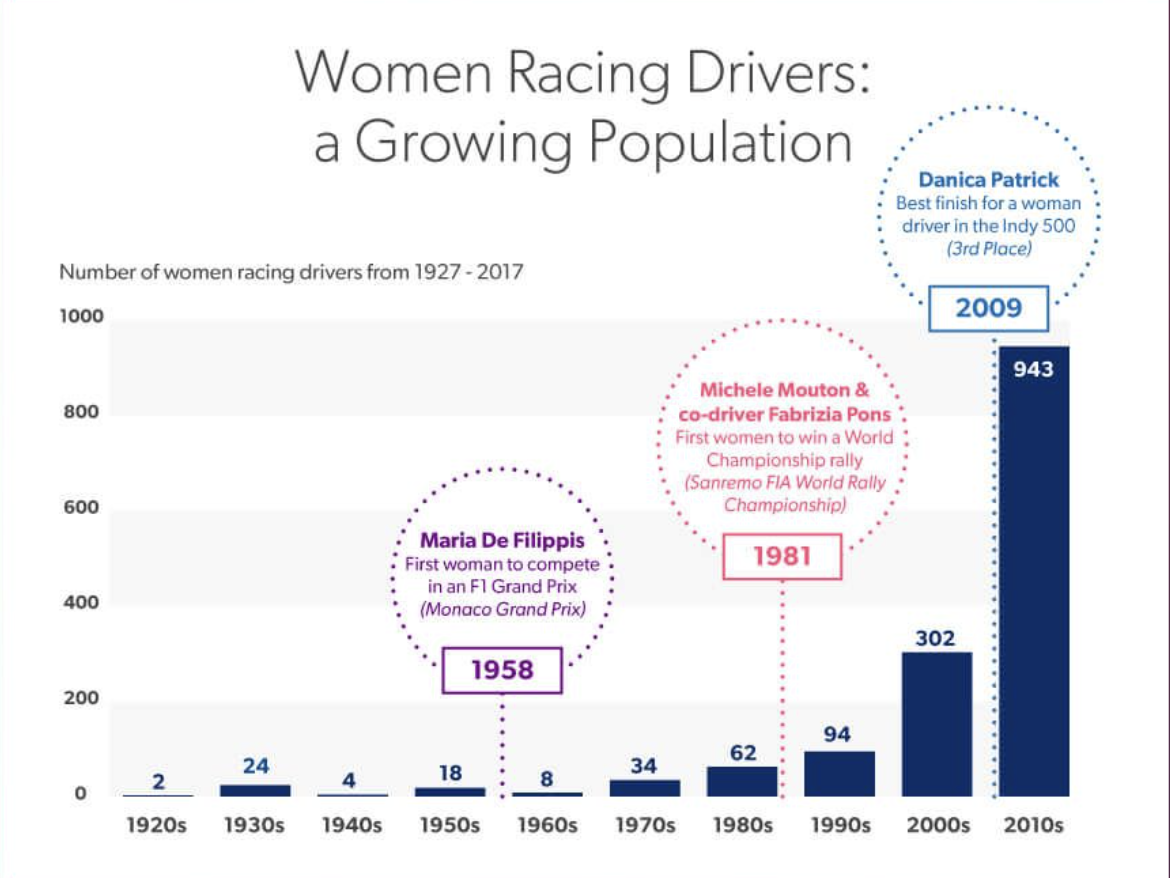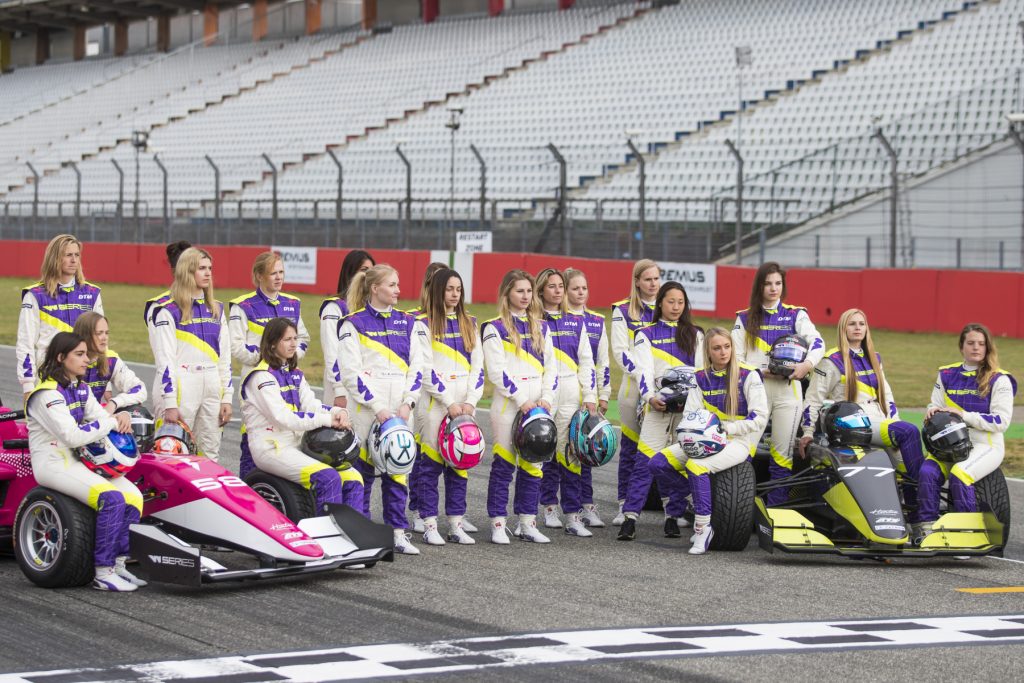Motorsport is one of the few sporting activities that allow women to compete at the same level as men, however, to this day the athletes are still predominantly male. A study produced by ex-Formula 1 driver David Coulthard, alongside his research for ‘More than Equal’ campaign, revealed that female participation in motorsport is in the region of 10%. Furthermore, when you look specifically at the top ranks of the sport, the statistic drops to only 4%. (Benson, 2023). Having a more diverse range of competitors would be an incredible opportunity to further grow the female fan base and encourage young girls to be optimistic about their future careers within science and engineering.

There are few large campaigns that currently provide programs for young girls and women to help encourage the leap into motorsport related careers which have proven effective due to the rise of female participation in the sector. An example would be the Girls on Track UK campaign. Founded in 2019 and affiliated with the FIA, the initiative has allowed schoolgirls aged 12-18 to pursue opportunities related to STEM subjects and push boundaries through producing all-female karting teams. (Lau, 2023). The success of these events has enabled young girls to drive against the stifling industry stereotypes and encourage their passions towards motorsport.
Looking at current female racing categories within the sport, there is a recent uprising which has been revolutionary as to how people look at women racing within formula one. In 2019, the first ever all-female single-seater racing championship named W-Series was formed. This competition was an incredible achievement for women promoting motorsport all over the globe. The series ran in 2019, 2021, and halfway through 2022 which allowed women drivers and engineers to be positively promoted and for girls like me to take further interest into motorsport.

Significant barriers in today’s world are still preventing women from being welcomed into the motorsport community. An article titled “More than ‘just a driver’” has proven that not only athletes but also female fans and engineers receive numerous sexist and discriminative attitudes towards their field of profession which discourages them to proceed. (Kochanek, 2020). The lack of female role models in the sport makes it difficult for women and girls to envision a future being a fan or participant. One of the most important steps we can take to increase female engagement is to be more visible and provide representation of women in the sport through marketing campaigns and social media.
